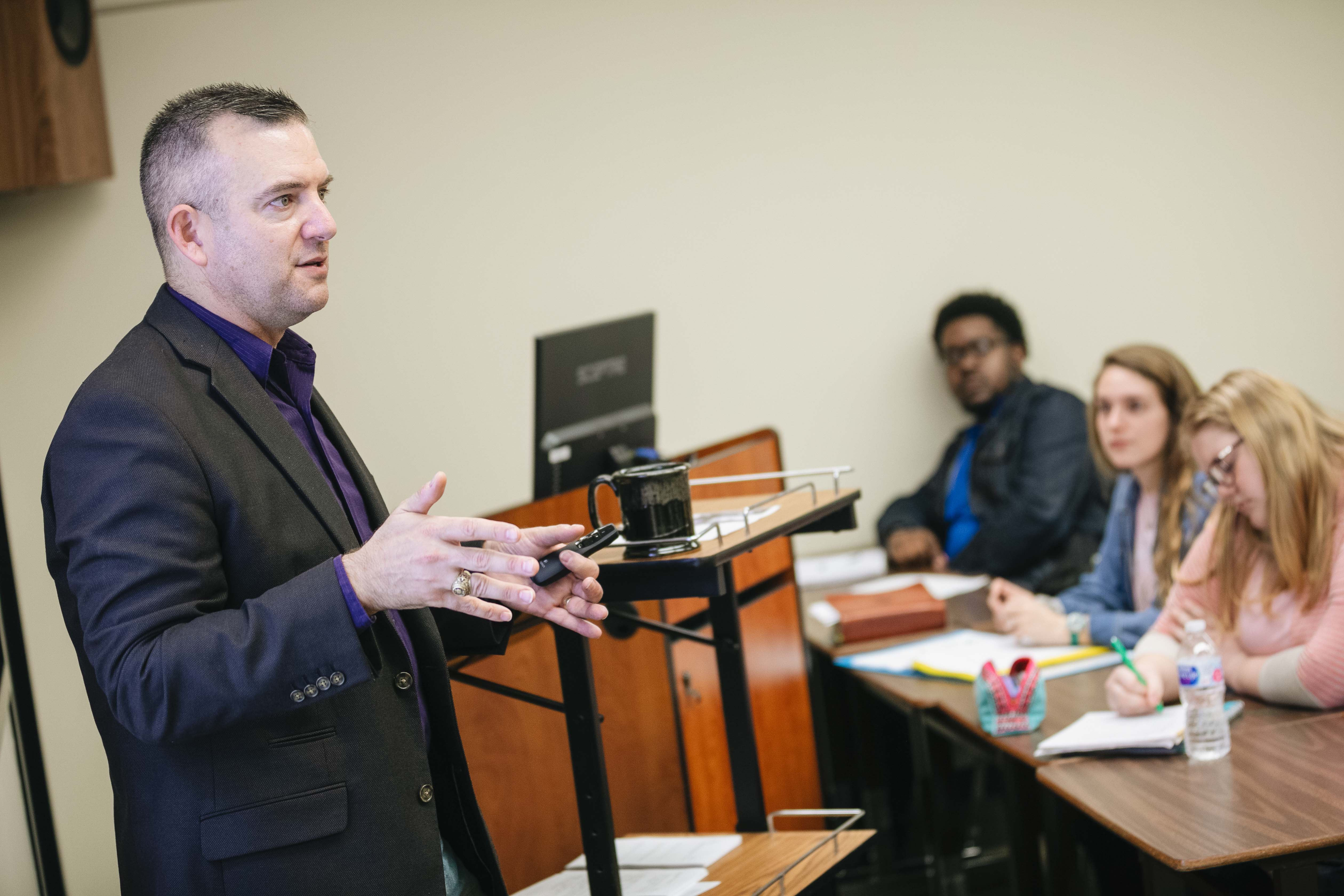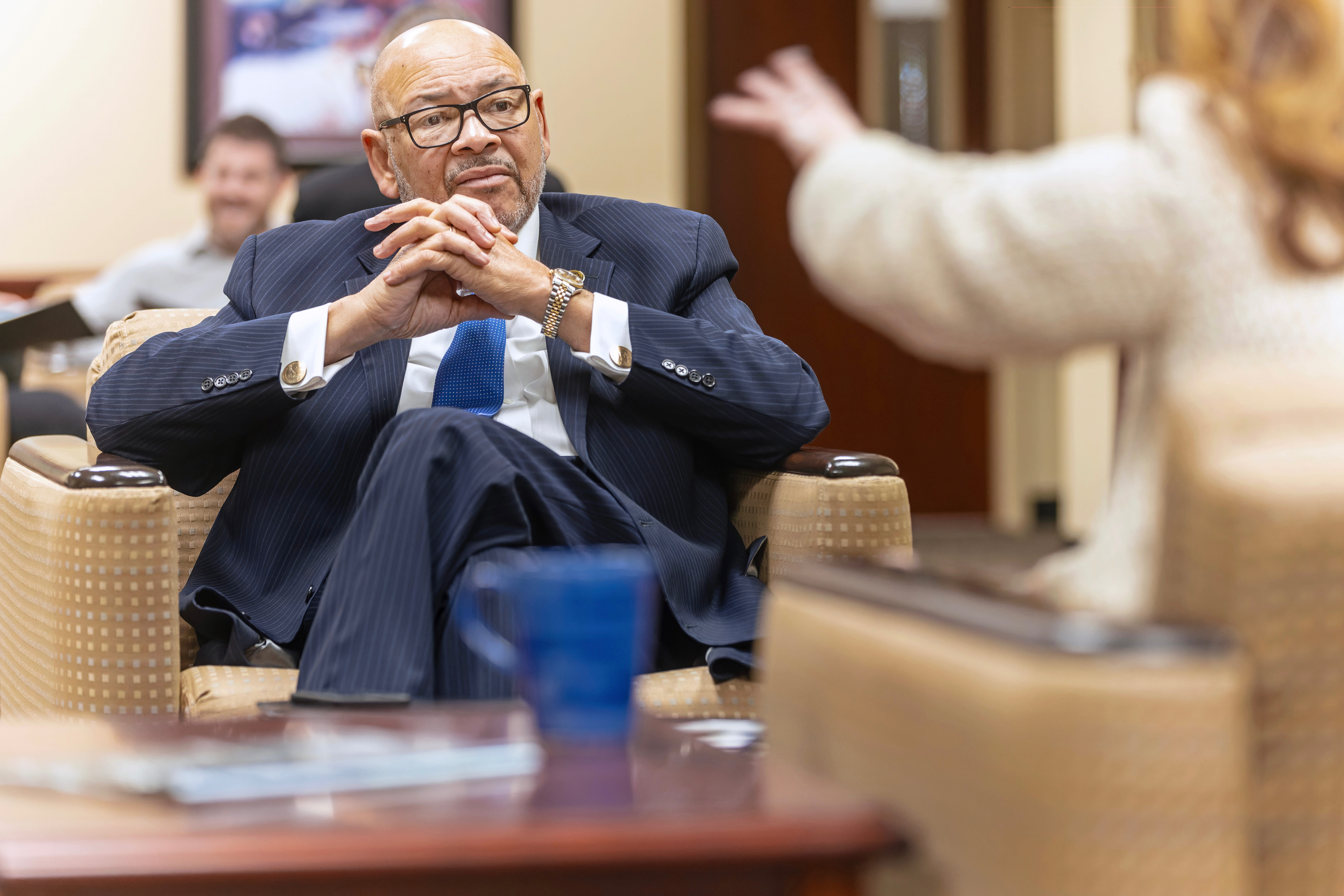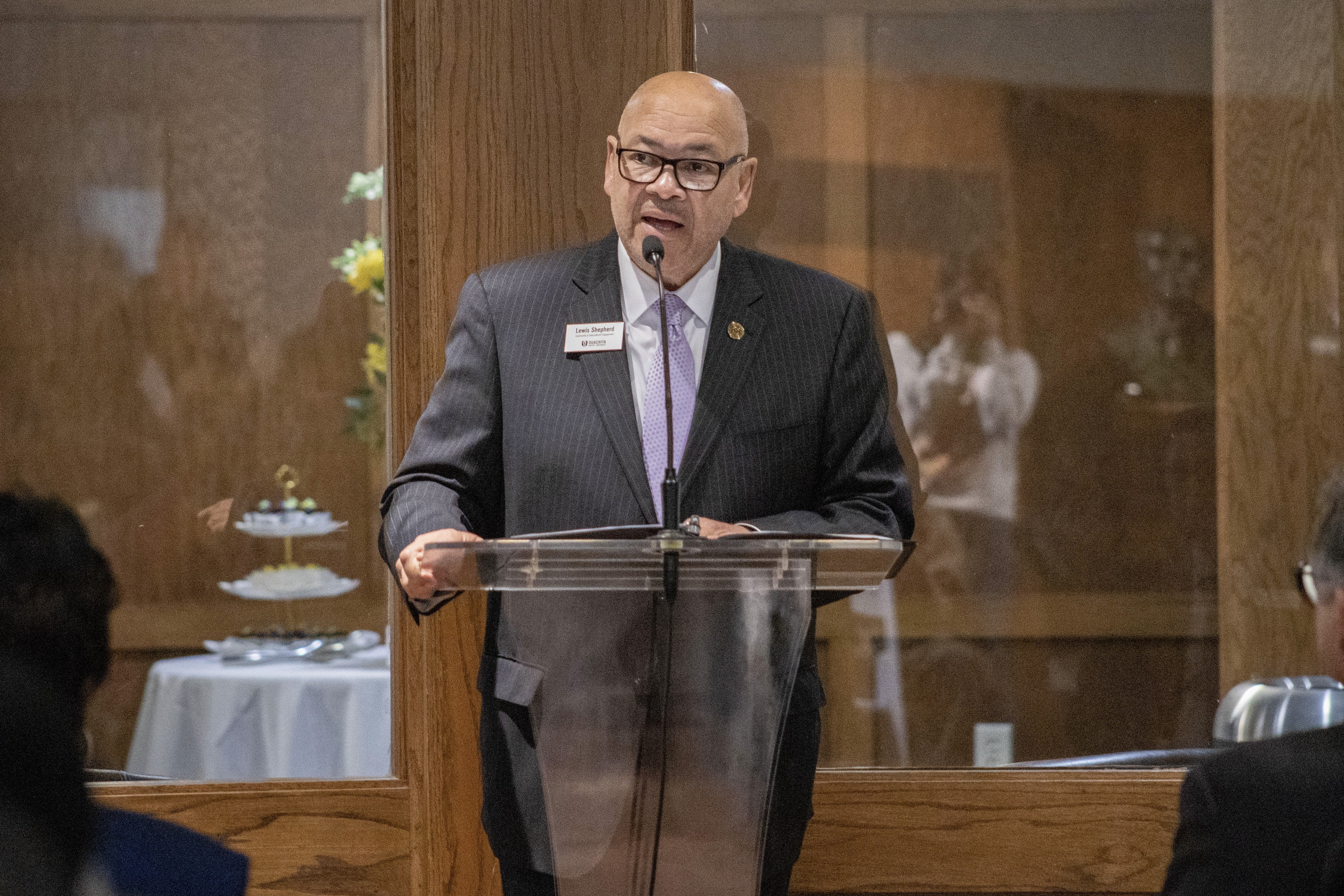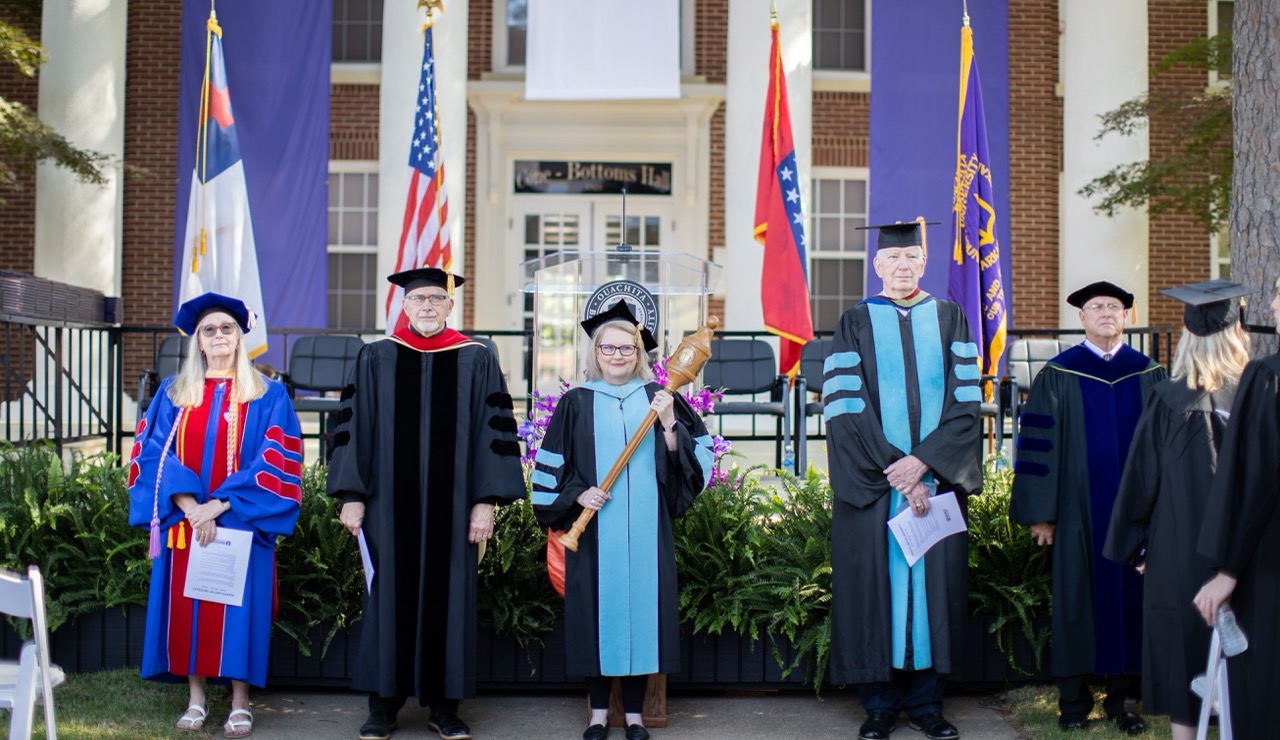Historians at Ouachita reflect on Juneteenth
 June 16, 2022
June 16, 2022
The students, faculty, staff and administration of Ouachita pause to commemorate Juneteenth. It is a time in which we reflect upon the many accomplishments that African American citizens made during this post-emancipation time period and continue to make today.
As a Christian institution of higher learning, Ouachita strives to be light and hope in a world that is sometimes consumed with darkness and despair. In this endeavor, we commit to lead in recognizing the dignity, worth and contributions of all people regardless of their race, color or creed. Join us in celebrating Juneteenth 2022 with these reflections on the day by two Ouachita history faculty members.
By Dr. Lewis A. Shepherd, Jr., vice president for community & intercultural engagement
What is Juneteenth?
By Dr. Kevin “Casey” Motl (pictured above), dean of the Sutton School of Social Sciences and professor of history, drawing from Teresa Palomo Acosta’s “Juneteenth” entry in the Handbook of Texas Online (accessed June 14, 2022).
The deadly contest of the American Civil War turned on the question of the preservation or the abolition of the institution of slavery. On Jan. 1, 1863, U.S. President Abraham Lincoln put into effect the Emancipation Proclamation, which declared that all enslaved persons in states still in rebellion at the time “are, and henceforward shall be free.” The proclamation was a product of Lincoln’s own evolved views on ending enslavement and handed the Union Army a renewed energy animated by the moral righteousness of their cause. That same year saw watershed Union victories at both Gettysburg, Pa., and Vicksburg, Miss., that turned the tide of the war.
Geography played an influential role in the dissemination of the news of emancipation. In secessionist states closer to the several theatres of combat and those with greater political stature in the Confederate States of America, the word traveled fast. On the outskirts of the Confederacy, however, the news of Lincoln’s proclamation was slow to reach enslaved populations. Plantation owners, whose livelihoods, social capital and political authority were wholly dependent upon enslavement, were all too happy to keep their victims uninformed for as long as they could.
So it was in Texas. As the war wound to a close, the enslaved population of the Lone Star State—the westernmost boundary of the Confederacy and a state in which only limited combat occurred—remained largely unaware of their newfound freedom. On June 19, 1865, Union General Gordon Granger landed on Galveston Island and issued General Order Number 3, declaring that “in accordance with a proclamation from the Executive of the United States, all slaves are free.”
Over the next several months, some 250,000 enslaved persons in Texas learned of their emancipation, the commemoration of which grew from immediate local celebrations to statewide recognition in 1979. On June 17, 2021, President Joe Biden signed into law a bill establishing a federal Juneteenth holiday—nearly 156 years to the day of General Granger’s announcement in Galveston.
Impact beyond Galveston: Global context for the holiday
By Dr. Myra Houser, associate professor of history
While the date and historical context of Juneteenth are significant, the freedom to celebrate it has been an important part of its national prominence. And more broadly, it falls in line with how much of the Western Hemisphere celebrates Pan-African freedom days.
In the U.S., despite the happy news of emancipation, the Jim Crow structures that were codified in the wake of Reconstruction meant that many Black people became reticent to celebrate the day. During the Great Migration, African Americans carried Juneteenth celebrations throughout the country, using emancipation from slavery as a symbol to celebrate life in new spaces, away from the racism of Jim Crow.
During the 1960s, groups such as the Southern Christian Leadership Conference encouraged a broader celebration of the day, and many traditional events such as public readings of the Emancipation Proclamation or poems and singing of spirituals became part of the observance. During this period, Black activists began in earnest to advocate for “America's Second Independence Day” to become a national holiday. Barbara Rose-Collins of Michigan introduced congressional legislation for recognition in 1971. Many Black women, such as Lula Briggs Galloway and Opal Lee, worked for decades to raise awareness of and support for Juneteenth as a federal holiday.
By 2021, when an executive order created the observance and a congressional act canonized the holiday, most states already had Juneteenth on the books as a state holiday. This year, the U.S. joined much of this hemisphere in celebrating an emancipation day. Some countries, such as Antigua and Barbuda, St. Lucia and Trinidad and Tobago celebrate emancipation with a carnival. Some countries, such as Suriname, recognize it apart from this. Much of the hemisphere celebrates Emancipation Day on August 1, though festivals take place throughout the summer. Last year, Canadian legislators (like their U.S. counterparts) recognized Emancipation Day as a holiday in several provinces, acknowledging the day’s importance to the many Afro-Caribbean people in Canada.
In recognizing Juneteenth as a federal holiday, the U.S. makes clear the importance of celebrating Black Americans and celebrating alongside people of African descent throughout the Americas. This includes a recognition of the ways in which enslaved Africans built the country's infrastructure; Black people—both free and enslaved—fought in its wars; Black business owners and press outlets persevered amidst race riots; and Black ministers, teachers and lawyers served as social engineers from the early 20th century on.
Because of its celebratory nature, Juneteenth provides an opportunity to honor Black life and achievement—and to consider what African Americans have endured and overcome in the U.S. It also acknowledges the ways in which white Americans have grown into a willingness to engage honestly with the country’s past and for all Americans to seek to build a more perfect union—together.
You Also Might Like
Recent
Ouachita reports Spring '26 enrollment, led by 50% increase in graduate students
February 11, 2026






